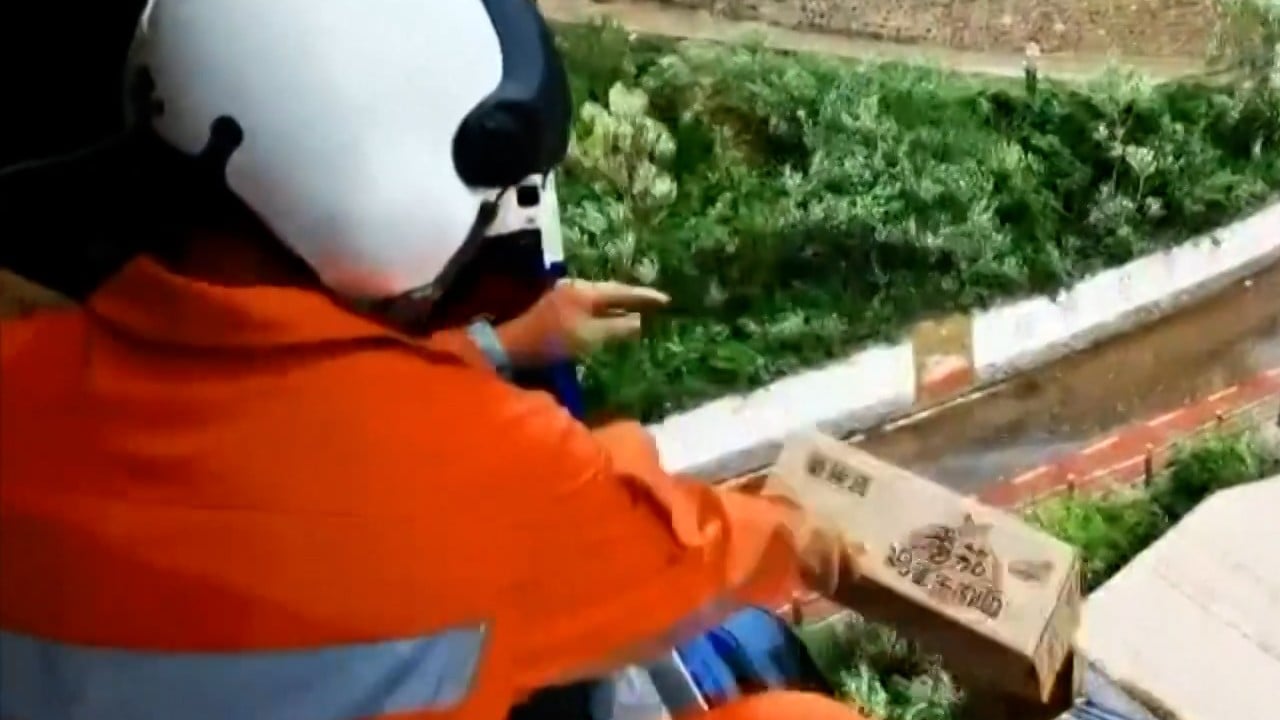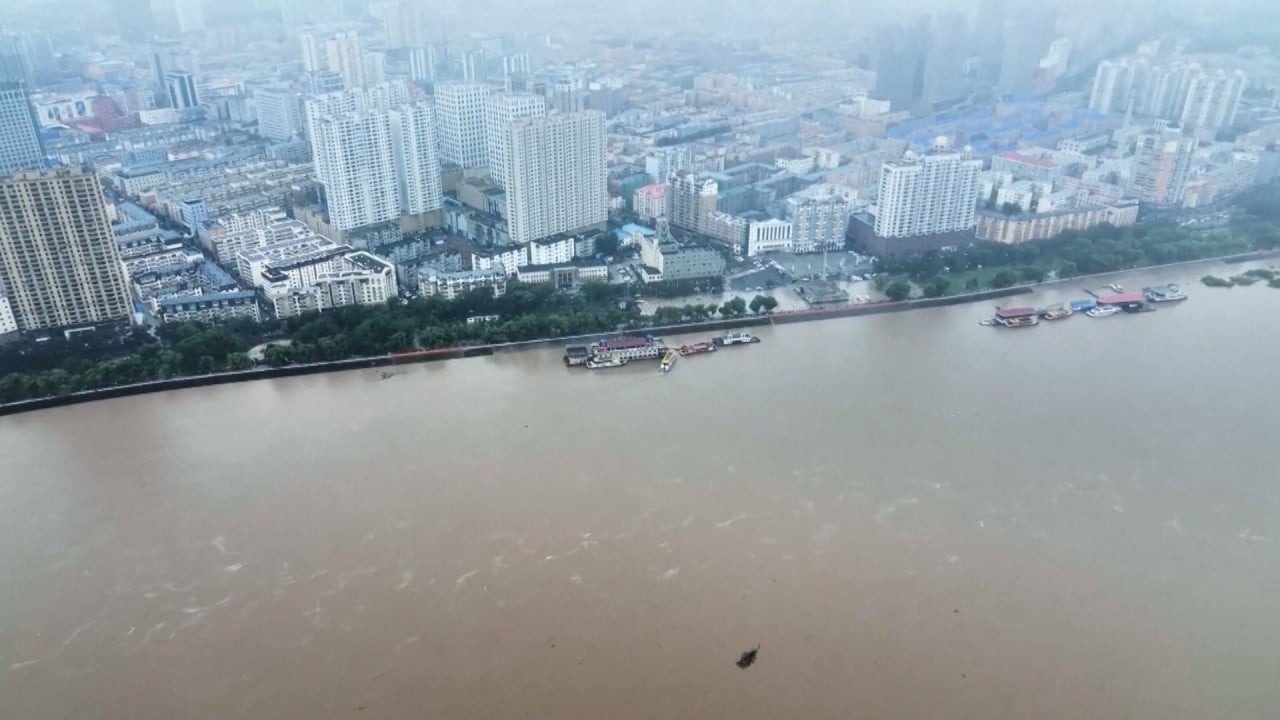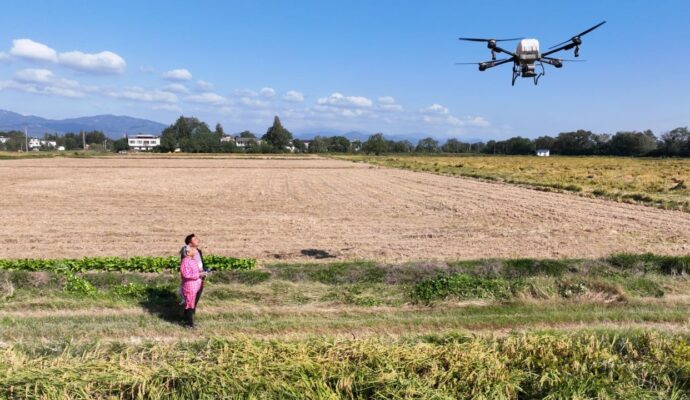But the most unrecoverable loss was human lives. As Beijing’s death toll reached 33, with 18 people still missing, Premier Li Qiang summoned the State Council and called on officials to work on national flood relief and “maintain the stability of society”.
No wonder, the catastrophic flooding has dealt China another blow at a time when it is going all out to revitalise a sluggish post-Covid economy, while risks such as high youth unemployment and an uncertain external environment pose threats to that much-cherished stability.
Though sometimes, it’s hard to say if the lives claimed by natural disasters are the most profound horror, or if that distinction goes to bureaucrats who act in their own self-interest in the face of catastrophe.
02:14
Residents of flood-ravaged Chinese city take stock of losses, hope for compensation
While the capital city’s plight dominated headlines, much of northern China was transformed into a flood zone, including nearby Hebei province.
as local officials opened up areas to help drain floodwater that had surged down from Beijing. Hebei Communist Party chief Ni Yuefeng called on the province to “serve as the capital’s moat” – comments that drew public ire.
His remarks came when inspecting the province’s flood-relief efforts in Baoding and the Xiongan New Area – President Xi Jinping’s pet project to relocate some state-run institutions away from Beijing that he called “a plan of a thousand years”. The area, though, is at a lower level than the capital, and historically soaks up floodwater from Beijing.
03:06
Beijing orders all-out search and rescue as deadly flooding sweeps northern China
Zhuozhou, a county-level city relatively unknown before the disaster, suddenly topped headlines across China with stories of homes being washed away, families being separated, and elderly residents stuck at home without food.
But when non-governmental rescue teams rushed to help, they were turned away, as they had not received an official invitation letter to provide the area with help – another local government misstep that angered the public.
Further drama came in an untimely manner, as an audit report – showing that government officials had misused 10 billion yuan (US$1.4 billion) from the reconstruction fund for a flood that killed 400 people in Henan province two years ago – came into public view while rescue efforts continued in Zhuozhou.
Deeply concerned that Hebei might become like Henan, many people decided not to make donations out of fears that their contributions would not reach those most in need.
While Beijing and Hebei have been reeling, China’s northeastern provinces of Heilongjiang, Jilin and Liaoning – known as China’s granary because the region accounts for more than one-fifth of China’s grain production – were hit by two typhoons in one week, with fields flooded and crops damaged.
Videos of farmers pleading for help made the rounds on social media, adding another challenge to Beijing’s food-security efforts and push for self-sufficiency amid rising tensions with the United States and global market disruptions stemming from the Russia-Ukraine conflict.
02:37
Northeast China evacuates over 1,200 residents as Typhoon Khanun threatens the region
Xi called for food security to be ensured and for insurance payments to be made as quickly as possible. He also urged cadres to make good use of the disaster relief fund. Within two weeks of the initial disaster, Beijing said it had allocated at least 21 billion yuan (US$2.9 billion) for the relief efforts. Still, it is expected to take at least two years to reconstruct Hebei and three years to rebuild Beijing.
But are there any lessons to be learned from Beijing suffering its heaviest rainfall in 140 years, in an era of extreme weather due to climate change?
Chinese experts have called for weather- and water-level-monitoring systems to be improved, and for at-risk cities such as Beijing to be more prepared.
Lessons to be learned from Beijing’s worst flooding in 140 years
Improvements needed in weather monitoring systems to combat increased extreme weather events
Recent heavy rainfall recorded by meteorological stations in Beijing and Hebei exceeded all historical data
In the wake of Beijing’s heaviest rainfall in 140 years, experts have warned that China needs to strengthen its weather and hydrological monitoring system, with the number of extreme weather events expected to increase due to climate change.
The downpours in the Chinese capital, which caused deadly flooding, broke a swathe of meteorological records. According to the Beijing Meteorological Service, one station in the northwest district of Changping recorded 744.8mm (29.32 inches) of rainfall between Saturday and Wednesday – the highest since 1891.
China food security: floods leave grain crops filthy, inviting pests and disease as Typhoon Khanun looms
Reeling from one storm and bracing for another, farmers in Heilongjiang province have appeared on social media begging for help protecting their crops, including rice
Harvest appears to be affected, and severe weather conditions like these are posing challenges to China’s food-security drive
Farmers across a region known as China’s northern granary are pleading for help to mitigate crop damage from floods as Typhoon Khanun threatens output with more heavy rainfall that could bring bugs and blight.
Water levels across Heilongjiang province have been falling since Monday after Typhoon Doksuri caused flooding across northern China since Friday, but farmers are struggling to rescue the most affected crops in the nation’s top grain-producing region.
Floods of humanity: China rescuers inundate social media with selfless acts in deluged city, touching millions online
Putting children first, saving man’s best friend and helping a hapless pig, emergency crews show their mettle in wake of floods
After days of strenuous work in flood-hit city, residents bid rescue teams fond farewell by lining streets as they depart
While the devastating floods which have ravaged Zhuozhou in Hebei province in northern China due to Typhoon Doksuri have caused more than their fair share of heartache, they have also illustrated the best of human nature.
Shangyou News reported on August 6 that biblical-scale flooding has affected about 2.22 million people in the city, forcing the evacuation of one in six residents.
Typhoons add to China’s food security headache, as export bans push up prices
Deadly rains in China have flooded fields and damaged crops, adding to concerns over Beijing’s food security drive and self-sufficiency push
India, Russia and the UAE have also recently announced rice export bans at a time when China has suffered its first drop in its summer harvest since 2018
Torrential rain brought by two successive typhoons has added to concerns over China’s food security, which is already under pressure as export bans from the likes of India have pushed up global prices, pushing officials and researchers to warn of a “severe impact” on agricultural production.
Typhoon Doksuri made landfall in China on Friday, and its remnants, along with the arrival of Typhoon Khanun this week, have flooded fields and damaged crops in northern China, with agricultural authorities worried about the potential effect on the northeast grain production base.
‘Candlelit dinner’: restaurant in China flood area treats 200 disaster workers
Devastating floods hit Zhuozhou in northern China after record rainfall that lasted for days caused by Typhoon Doksuri
As thanks for their efforts, restaurant serves 200 relief workers a free candlelit meal despite having no electricity and little water
A restaurant in northern China hit by severe flooding has hosted 200 disaster relief workers at a complimentary candlelit dinner without electricity or water as a mark of respect for victims.
Devastating floods hit Zhuozhou in Hebei province after Typhoon Doksuri caused record rainfall that lasted for days.
‘Must not let you down’: train attendant’s plea to trapped passengers goes viral
Rail attendant urges trapped passengers not to swarm staff handing out food and water
Video of impassioned address gets 3 million likes on Douyin, plaudits for dedication to passenger safety
A carriage attendant’s emotional address to passengers trapped for more than 10 hours on a train in China after mudslides blocked the tracks has gone viral on mainland social media.
The train was travelling from Inner Mongolia in northern China to Beijing on July 30 when mudslides caused by recent heavy rain blocked the tracks and stranded the 976 passengers in the suburban Mentougou District of the capital, the Yangtze Daily reported.
Chinese public fear repeat abuse of flood relief funds after it emerges over US$1 billion in aid for 2021 was misused
Internet users react with anger after its emerged that up to half the money earmarked for Henan province after the 2021 floods was diverted elsewhere
Reports on the topic circulating extensively online even as rescue operations in the north and northeast of the country were continuing
Reports that flood relief funds had been siphoned off have sparked anger in China and prompted fears that the same thing may happen again after this month’s devastating floods.
Late last month an audit report by the Henan provincial government documented how about 10 billion yuan (US$1.4 billion) of reconstruction funds earmarked for the 2021 summer flooding in Henan had been misused or siphoned off for other uses by local officials.
Global Impact is a weekly curated newsletter featuring a news topic originating in China with a significant macro impact for our newsreaders around the world.
South China Morning Post





